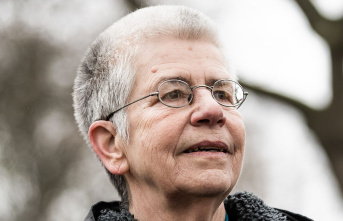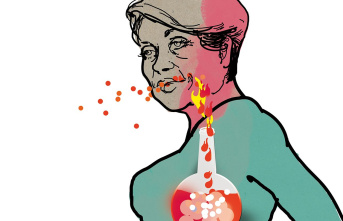Christmas is that time of year when emotions couldn't be more different. While some are happy to be able to spend the holidays with their families, for others it is probably the loneliest time of the year. Whether in film or advertising: the narrative of a merry and contemplative Christmas is being spread everywhere. But not everyone has someone to spend the holidays with. Miss the deceased partner or feel lonely even in social gatherings.
Loneliness has many faces: We can be lonely because we are unintentionally alone and feel socially isolated. A feeling of emptiness and being left alone can also arise from a lack of access to one's own emotional world. According to data from the Socio-Economic Panel (SOEP) from 2013 and 2017, only around 14 percent of people in Germany sometimes felt lonely.
During the corona pandemic, there were significantly more. In the SOEP 2021, around 42 percent of Germans stated that they felt lonely. But it's not just a feeling. Those who are lonely are more prone to chronic diseases such as high blood pressure or coronary heart disease.
There is a very close connection between our brain and our heart. It is connected to one another via the vegetative nervous system, among other things. "This internal 'highway' creates a close and very fast connection between what is thought, felt and viscerally or muscularly perceived," write Roland Prondzinsky and his team in the journal "PiD Psychotherapie im Dialog". Means: It really comes down to our heart how we feel.
The hormone oxytocin is commonly known as the bonding hormone. According to study data, the hormone seems to support the function of the coronary vessels. The coronary arteries are the arteries and veins that carry blood to and from the heart muscle.
It also appears to be involved in suppressing the development of coronary plaque. Plaque is a build-up on the arterial walls. With deposits of this kind in the coronary atria, there is a risk of a heart attack. The authors write that the findings about oxytocin underscore the importance of social bonds.
In addition to biological risk factors such as obesity, high blood pressure or diabetes, psychosocial components such as loneliness can also have a negative impact on heart health. Studies have shown that loneliness plays a role in high blood pressure. The authors put it provocatively in the journal: "The greater the loneliness, the higher the blood pressure!" People with a weak social network have a 29 percent increased risk of heart attack. This is the result of a meta-analysis of a total of 4628 evaluated patient stories with heart attacks.
The team of authors writes in the specialist article that loneliness deserves much more attention in the future. With regard to heart diseases, for example, a close relationship of trust between doctors and patients is important. Only in such a relationship is there perhaps also a report about one's own loneliness and the social network.
Sources: Roland Prondzinsky et al. (2022): "Heart and Loneliness" in: PiD Psychotherapy in Dialogue, Georg Thieme Verlag KG, Stuttgart, SOEP












